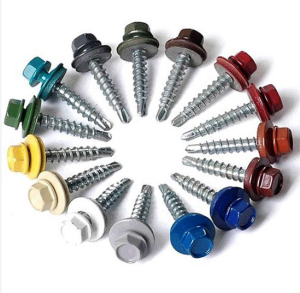Understanding the Definition and Purpose of Spring Washers in Mechanical Engineering
Understanding Spring Washers Definition and Applications
Spring washers are essential mechanical components designed to provide flexibility and resilience in various fastening applications. As fundamental as they are, their role is often overlooked in everyday machinery and structural applications. This article delves into the definition of spring washers, their types, functions, and where they are commonly used.
Definition of Spring Washers
At its core, a spring washer is a type of washer that provides a spring-like effect or tension to maintain connection integrity between fasteners and the materials they are securing. Unlike standard flat washers, spring washers come with a unique design that allows them to absorb shock and maintain upward pressure on the fastened components, preventing loosening due to vibration or other forces. Spring washers can be made from various materials, including steel, stainless steel, and plastic, depending on their intended use and environmental conditions.
Types of Spring Washers
There are several variations of spring washers, each tailored for specific needs
1. Helical Spring Washers These washers are coiled and designed to act like a compressed spring. They are typically used in applications where components experience axial loads.
2. Conical Spring Washers Characterized by their conical shape, these washers are ideal for applications requiring high load bearing and can also adapt to various surface conditions.
3. Bellville Washers A variant of the conical spring washer, the Bellville washer has a distinct shape that provides a firm and consistent load over a range of deflections.
4. Wave Washers These washers consist of a series of waves and are used in applications where space is limited, and a low-profile solution is necessary.
Each type of spring washer serves a unique purpose and provides specific benefits, making them indispensable in diverse fields.
The Function of Spring Washers
spring washer definition quotes

The primary function of spring washers is to prevent loosening of bolted joints. This is particularly crucial in equipment that experiences vibrations, such as engines, machinery, and vehicles. The spring action of these washers compensates for changes in load and temperature, thereby ensuring that the fastening remains secure.
Additionally, spring washers help distribute loads evenly across surfaces, minimizing potential damage to both the fastener and the material being secured. This characteristic is especially important in high-stress environments, where even minor fluctuations can lead to catastrophic failures.
By choosing the right type of spring washer, engineers and designers can enhance the durability and reliability of their constructions. The correct application of spring washers can lead to longer maintenance intervals and improved performance in mechanical systems.
Applications of Spring Washers
Spring washers find usage in various industries, from automotive to aerospace, manufacturing, and electronics. Here are a few examples
- Automotive Industry In vehicles, spring washers are commonly used in engine assemblies, suspension systems, and other areas where vibration is prevalent. Their ability to absorb shocks ensures that fasteners remain intact, contributing to the overall safety and reliability of the vehicle.
- Aerospace The aerospace industry demands components that can withstand extreme conditions. Spring washers are essential in aircraft assemblies to prevent loosening during flight caused by extreme vibrations and g-forces.
- Heavy Machinery In construction and mining equipment, spring washers are utilized to secure critical components under heavy loads, preventing mechanical failures that could halt operations.
- Electronics In electronic devices, spring washers facilitate tight connections between components, accommodating thermal expansion and contraction that can occur with temperature changes.
Conclusion
In conclusion, spring washers are vital components that enhance the performance, safety, and longevity of various mechanical assemblies. Their unique design and operational characteristics make them suitable for a wide array of applications across multiple industries. Understanding their definition and functions allows engineers, designers, and manufacturers to make informed decisions when it comes to securing their mechanical connections. As technology continues to advance and machines become more sophisticated, the importance of spring washers in providing reliable fastening solutions will only grow. By investing in quality spring washers tailored for specific applications, organizations can enhance their operational efficiency and reduce the risks associated with equipment failures.
-
Top Choices for Plasterboard FixingNewsDec.26,2024
-
The Versatility of Specialty WashersNewsDec.26,2024
-
Secure Your ProjectsNewsDec.26,2024
-
Essential Screws for Chipboard Flooring ProjectsNewsDec.26,2024
-
Choosing the Right Drywall ScrewsNewsDec.26,2024
-
Black Phosphate Screws for Superior PerformanceNewsDec.26,2024
-
The Versatile Choice of Nylon Flat Washers for Your NeedsNewsDec.18,2024










